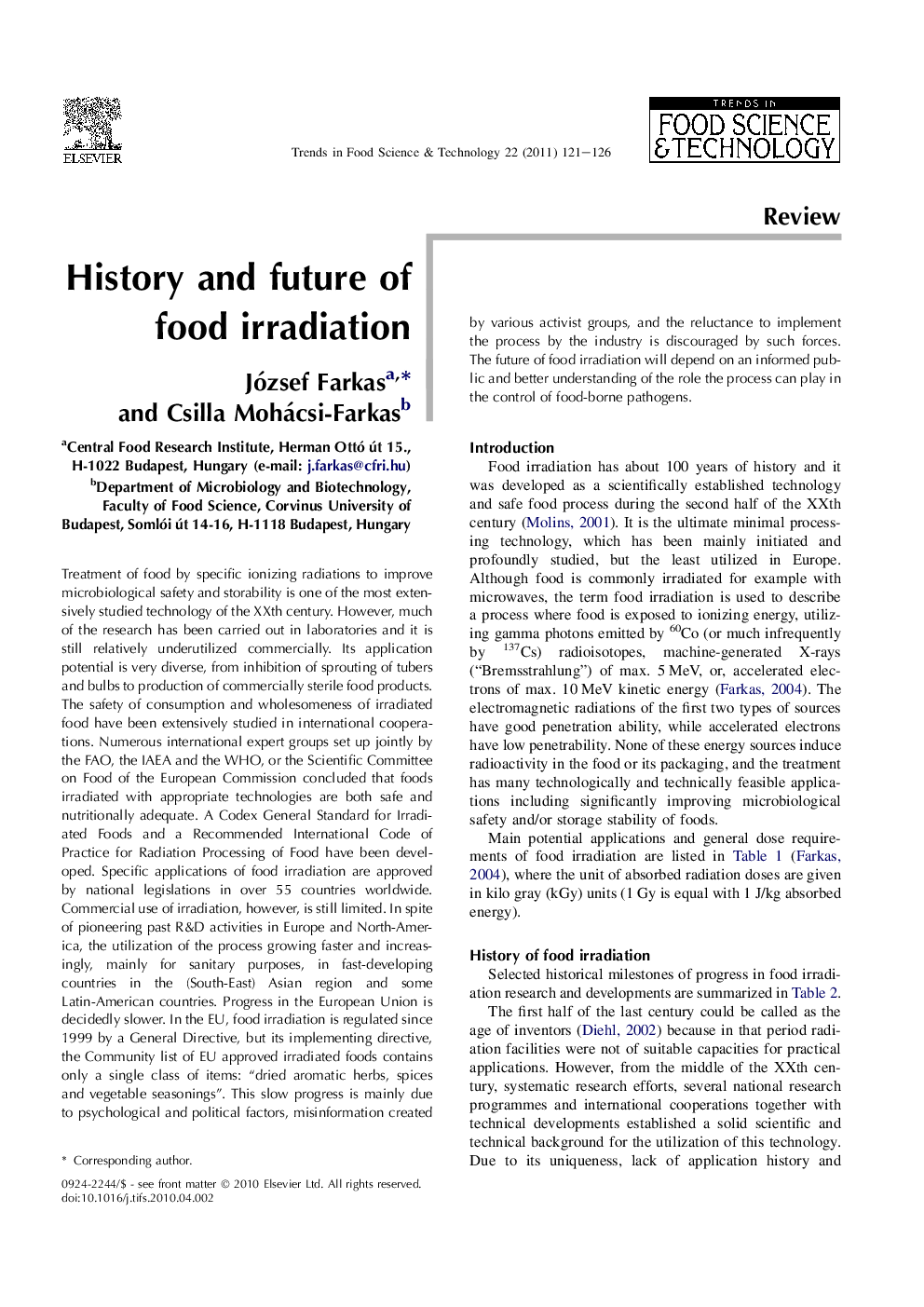| کد مقاله | کد نشریه | سال انتشار | مقاله انگلیسی | نسخه تمام متن |
|---|---|---|---|---|
| 2099114 | 1546134 | 2011 | 6 صفحه PDF | دانلود رایگان |

Treatment of food by specific ionizing radiations to improve microbiological safety and storability is one of the most extensively studied technology of the XXth century. However, much of the research has been carried out in laboratories and it is still relatively underutilized commercially. Its application potential is very diverse, from inhibition of sprouting of tubers and bulbs to production of commercially sterile food products. The safety of consumption and wholesomeness of irradiated food have been extensively studied in international cooperations. Numerous international expert groups set up jointly by the FAO, the IAEA and the WHO, or the Scientific Committee on Food of the European Commission concluded that foods irradiated with appropriate technologies are both safe and nutritionally adequate. A Codex General Standard for Irradiated Foods and a Recommended International Code of Practice for Radiation Processing of Food have been developed. Specific applications of food irradiation are approved by national legislations in over 55 countries worldwide. Commercial use of irradiation, however, is still limited. In spite of pioneering past R&D activities in Europe and North-America, the utilization of the process growing faster and increasingly, mainly for sanitary purposes, in fast-developing countries in the (South-East) Asian region and some Latin-American countries. Progress in the European Union is decidedly slower. In the EU, food irradiation is regulated since 1999 by a General Directive, but its implementing directive, the Community list of EU approved irradiated foods contains only a single class of items: “dried aromatic herbs, spices and vegetable seasonings”. This slow progress is mainly due to psychological and political factors, misinformation created by various activist groups, and the reluctance to implement the process by the industry is discouraged by such forces. The future of food irradiation will depend on an informed public and better understanding of the role the process can play in the control of food-borne pathogens.
Journal: Trends in Food Science & Technology - Volume 22, Issues 2–3, March 2011, Pages 121–126